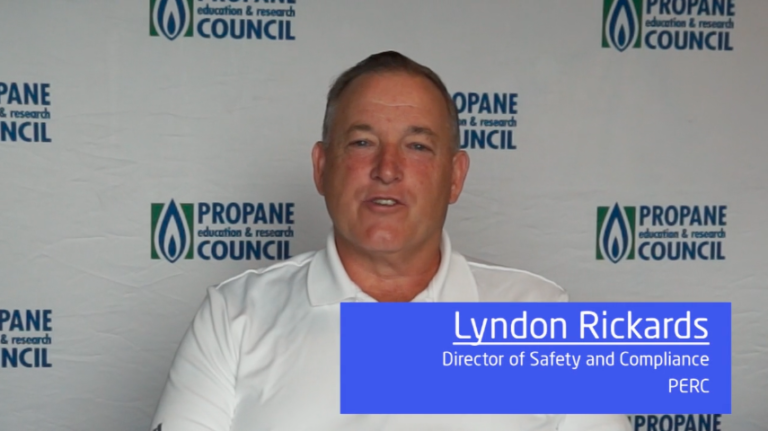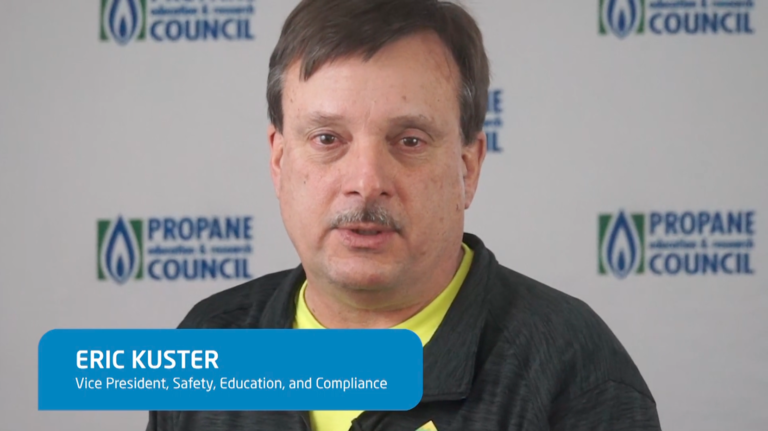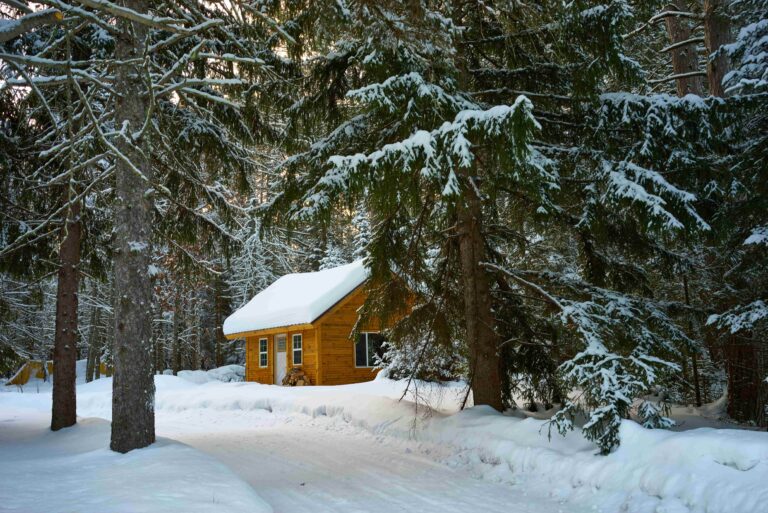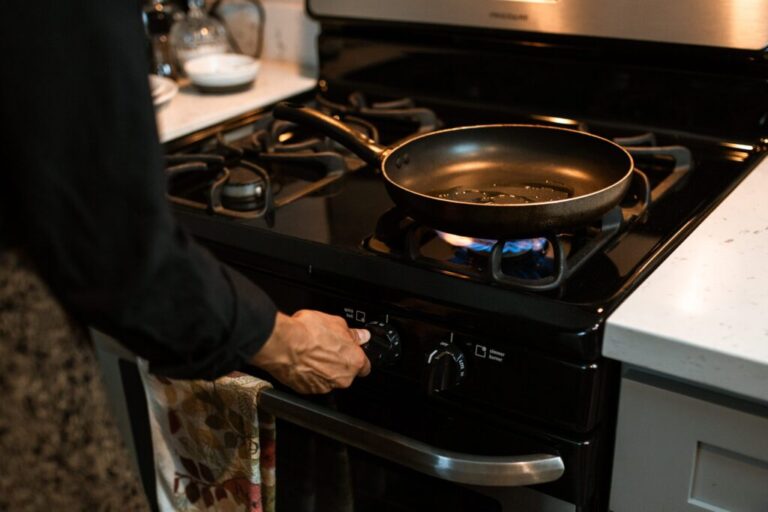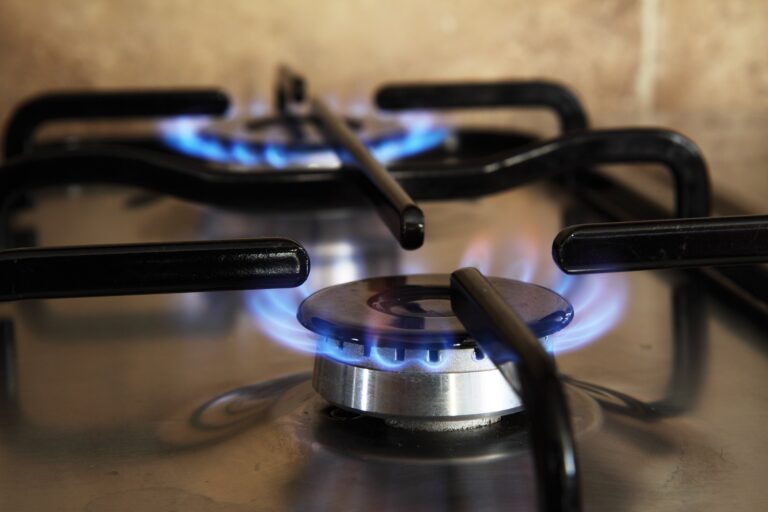Propane Safety & Winter Storms
Depending on where you live, freezing rain, ice storms, heavy snow and near-blinding blizzards may all be part of winter. But being unprepared for them shouldn’t be. Winter storms can cause extended power outages and hazardous travel conditions. Access to fuel, and emergency and medical services may be limited once a severe storm hits a region. Implementing a winter safety plan now is essential to help reduce your risk.
Prepare for Every Possibility
Before, during, and after a storm, there are a few key things to consider to keep your family and your home as safe as possible.

CREATE AN EMERGENCY PLAN
Work with your family to create a plan in the event of a winter storm. As part of this effort, make sure to post contact information for emergency services and utility companies—including your local propane supplier. You should also post instructions for turning off your propane, electricity, and water. (If you turn off your propane, contact a service technician to inspect your system before turning it back on.)

INSTALL A UL-LISTED GAS DETECTOR
To better prepare for any potential damage, install a UL-listed gas detector in your home, which will notify you if a leak ever occurs. Always follow the manufacturer’s instructions when it comes to installation, location, and maintenance.

PLAN FOR COMMUNICATIONS
Keep a battery-powered radio handy, so you always have a way to receive updates on weather conditions. As storms approach, it’s also smart to charge up your smartphones, so you have an additional tool for communication through a long power outage. Or, consider purchasing a propane generator so you always have reliable power, even during blackouts.

INSPECT DAMAGE CAUTIOUSLY
If a storm causes harm to your property, be careful when you assess damage as downed power lines, damaged gas lines, and dislodged propane tanks can lead to dangerous situations. In the dark, use a flashlight instead of candles to avoid combustion in the case of a leak.

IF YOU SENSE DANGER, CALL THE EXPERTS
Your utility company, fire department, and propane supplier have expert training, and should handle any potentially dangerous situations with your home’s systems. Additionally, if a storm damages your property, it’s a good idea to have a qualified service technician perform a complete inspection of your propane system, to ensure no harmful damage was done.
Take Precautions
For residents living in a propane home, there are a few specific precautions homeowners can take to ready their property for the potentially-high accumulation of snow. Propane is a safe, reliable, and efficient energy source that will provide comfort during the season, but accumulated snow and ice have the potential to damage the propane system. Many of these safety measures can be quickly implemented and will go a long way to ensuring a home is best prepared for the looming winter storm.
Get to know your propane system. If you are not familiar with your propane system, take a few minutes to review it. Identify core components — tank, regulators, meter, piping, and supply valves — as well as any appliance vents. Be sure you know where your gas supply valve is located, in case you need to close it in the event of an emergency. For more information, please contact us.
Mark your tank and regulator. Mark your tank with a brightly colored stake or flag taller than the maximum anticipated snow depth. Also, mark your secondary pressure regulator or meter. It is usually near the side of your home. This is important to enable emergency and propane service personnel to locate it at all times.
Have an adequate supply of propane in your tank. In high snowfall areas, roads leading to your home might not be accessible for delivery, particularly after a snowstorm. If there’s still time, contact your propane supplier and fill up your tank.
Talk to your contractors. If you use a snow removal service, make sure that the service knows the location of all propane equipment on the property. Instruct them to keep their equipment clear of all parts of your propane system.
Keep snow and ice from accumulating on propane equipment. Snow or ice accumulation can potentially cause parts of your propane system to crack or break, resulting in a gas leak. Gently brush away snow or ice that has accumulated around the tank, meter, regulator, and any other piping using a broom or by hand.
Be alert to snow buildup on rooftops and other areas. Frequently check where snow or ice collect on your roof, structure, or nearby trees and clear it if you believe it might fall on any part of your propane system.
Keep vents clear. Appliance vents and chimney flues need to be clear of snow or ice, too. Some homes may have “direct” vents, which are close to the ground. Improper venting can cause carbon monoxide to become trapped in your home, causing serious illness or even death.
Clear driveways and pathways to propane tanks. When clearing snow, remember that a propane delivery truck needs at least a 10-foot-wide path to be able to deliver fuel to your tank.
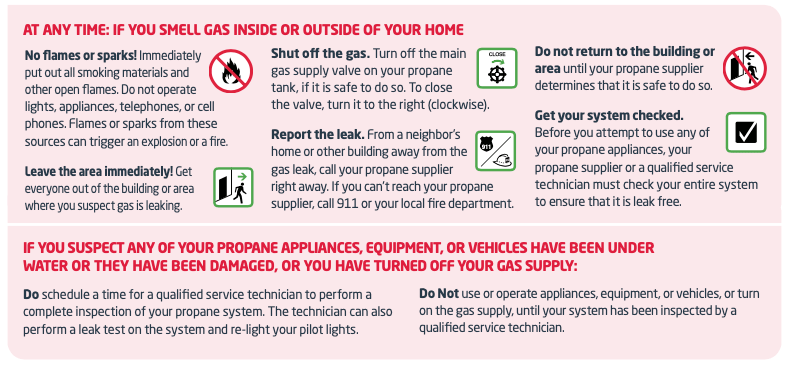
Check out the Propane Education & Research Council website for more information.


